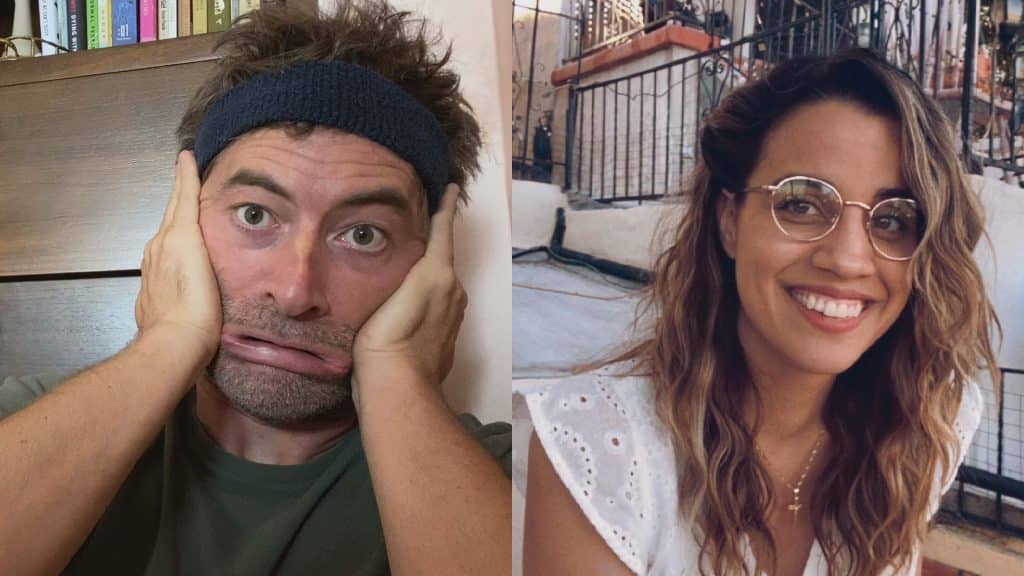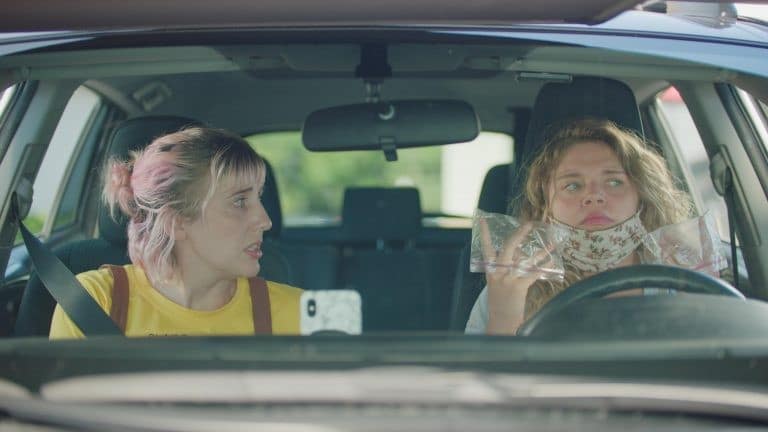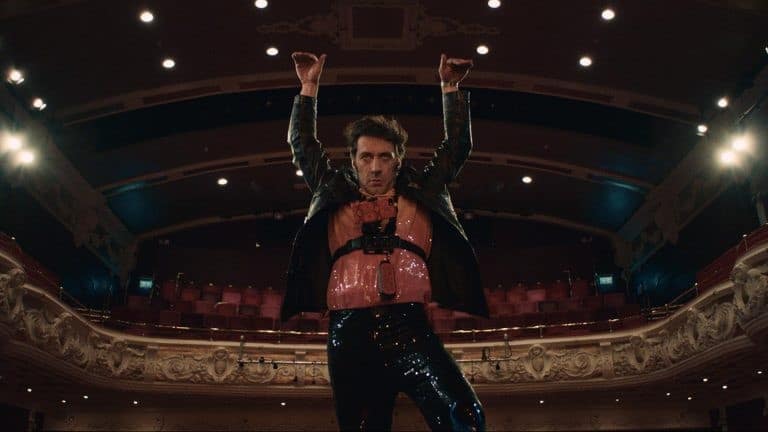Read also:
How to Watch FX Live Without CableHow To Watch AMC Without CableHow to Watch ABC Without CableHow to Watch Paramount Network Without CableCOVID-separated relationships and sociopathic actors mark SXSW’s latest crop of narrative spotlight features.
The second day of South by Southwest’s Narrative Spotlight titles went all over the map, from Costa Rica to a lavish house in California to a wannabe Joker located in Britain. All brought to your own home through the magic of a virtual film festival. The wonders of technology in the age of COVID-19 never cease. Let’s unpack the wonders (or lack thereof) in the newest Narrative Spotlight films, the first of which concerns a budding friendship between two people living on different continents.

It wouldn’t be an independent film festival without a movie starring Mark Duplass! We get just that with Language Lessons, the feature-length directorial debut of Natalie Morales. The film concerns Adam (Duplass), whose husband has gifted him with 100 weeks of virtual Spanish lessons with Cariño (Morales). The two start out just exchanging friendly chit-chat between mastering Spanish grammar. However, a personal tragedy for Adam totally upends the relationship between the two, which ends up becoming both deeper and messier than either could’ve initially imagined.
Language Lessons is the most recent example of a movie told entirely through a computer screen, like Unfriended or Searching. Here, webcams are the windows into Adam and Cariño’s souls as they, like all of us in the last year, engage in a whole lot of Zoom sessions. The story they share over these calls is a pleasing one, even if it’s clumsily structured in some respects. In particular, the devastating event in Adam’s life occurs too early. This should be something that upends what Adam and Cariño consider normal, but the film hasn’t been able to properly establish a sense of “normal” yet.
Otherwise, the picture remains reasonably diverting, with Morales’s lead performance being the standout element of the whole production. As Cariño, Morales handles a variety of different emotions, from closed-off to drunkenly goofy. She makes each new corner of this character both organic and interesting. It’s also commendable that her direction doesn’t lean too much on goofy gimmicks associated with the computer-screen presentation. That could have been an easy crutch to lean on, but Morales keeps the focus maintained firmly on the experiences of the characters.
In fact, the execution of this element is so retrained that it’s easy to forget that Adam and Cariño are even talking into webcams. Unfortunately, not every story detail in Language Lessons is as sharply-realized as its computer-screen presentation. Still, the narrative does work decently as a springboard for some creative visual touches and a strong lead performance from Natalie Morales.
(You can also read our full review of Language Lessons out of Berlinale here.)

Up to this point, narrative movies dealing with COVID-19 have been terrible. This fresh-faced subgenre is dominated by cheapie thrillers and horror movies that are merely looking to make a quick buck off a health crisis. Exempting Borat Subsequent Moviefilm, Recovery, a film from directors Mallory Everton and Stephen Meek, is the first genuinely good entry in this domain. Come to think of it, maybe Borat and Recovery demonstrate that only through raunchy humor can cinema truly tackle the insanity of the pandemic.
Blake (Everton) and Jamie (Call) are two sisters who housebound after the COVID-19 pandemic wrecks havoc on the world. A few weeks into this crisis, they get an alert that their grandmother’s nursing home has been overrun with COVID. Knowing their grandma is in danger, it’s time for a road trip to retrieve their elderly relative. It’s a hazardous journey that, among its other struggles, will see this duo trying their hardest to not get infected.
Among the many refreshing qualities about Recovery is that it doesn’t use the pandemic as a means for schmaltzy lessons. With no tidy character arcs to cramp the proceedings, the focus can remain on the most enjoyable parts of the movie, like the warm rapport between the protagonist and chaotic humor. Speaking of comedy, Everton and Call’s screenplay smartly avoids well-worn hallmarks of COVID-era humor. No tired toilet paper shortage or food delivery gags here.
Instead, jokes related to the pandemic are more specifically-detailed while both writers avoid solely leaning on this crisis to generate humor. An early sight gag involving Blake putting sandwich-bag-sized plastic bags on her hands to sanitarily use a gas pump is a great example of COVID-centric humor in Recovery. On the other hand, amusing road trip banter between Blake and Jamie or a recurring bit involving absurd romantic audiobook narration would be funny even without the surrounding pandemic.
The real-world horrors informing Recovery does make the dynamic between the two leads all the more heartfelt, though. Yay for endearing and goofy friendships enduring in the face of turmoil! Extremely funny and well-conceived, Recovery is, in the words of fellow COVID-19 movie star Borat, “very nice!”

The titular Paul Dood (Tom Meeten) of Paul Dood’s Deadly Lunch Break is a man in his mid-40s who wants desperately to nail an audition for a local reality competition show. While trying to get to his audition, Dood is constantly stopped by a series of rude people. He ends up being late for his audition before experiencing a personal tragedy, a pair of events that send him off the deep end. Now, Dood is now going to get his revenge on the five people who wronged him that fateful day, all during his lunch break from his job at a thrift store.
On paper, Paul Dood’s Deadly Lunch Break wants to be a dark comedy crossed with Joker. As an actual movie, it never comes close to the movies it’s clearly aping. For one thing, screenwriters Brook Driver, Matthew White and Nick Gillespie (the latter of whom also directs) never make the movie all that shocking. Everything plays out so broad and predictably that there’s no real bite to the proceedings. All the people that are introduced as bad are bad, all the people that are introduced as scrappy underdogs remain just that.
Paul Dood’s Deadly Lunch Break is nowhere near clever enough to compensate for its lack of surprises. There are also oddly arcane qualities to a movie that’s aiming for edgy subversiveness. Paul Dood has a lady co-worker whose around to be a generic love interest, for instance, while the one evil woman is coded as being bad because she has sex. Scandalous! It also needs to be said that making a film in modern British society where the representation of the oppressed is a cishet white guy feels disingenuous at best, considering the rampant bigotry facing Muslims and trans people in Britain.
This lifeless script is paired up with unoriginal direction from Gillespie and mostly forgettable performances from the cast. We live in a society, sure, but not in a society where a movie like Paul Dood’s Deadly Lunch Break would be considered good.